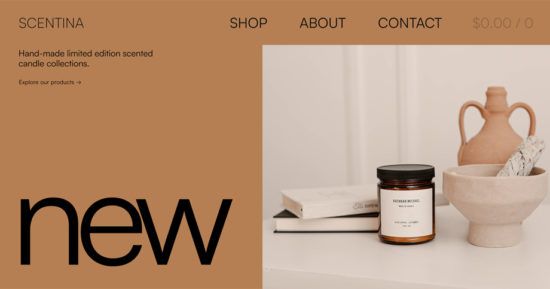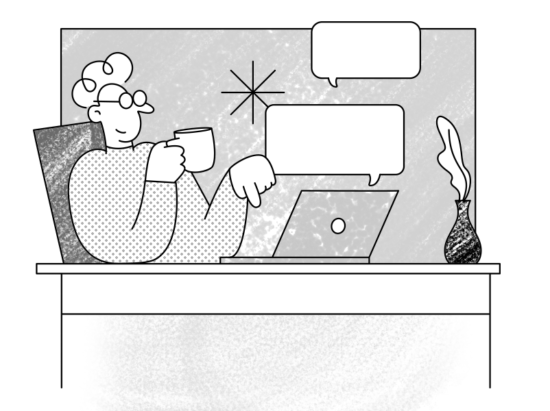Medium is great. WordPress is great, too. But which is great for YOU?
Let’s find out.
Full disclosure: I work for a company that loves WordPress and makes money by selling themes for WordPress. Thankfully, they don’t care if I trash talk my own company. They would rather I write what I believe in. Talk about having great bosses. (Me saying I have great bosses was written out of my own free will. Seriously.)
What’s Medium?
As Wikipedia writes:
Medium is an online publishing platform developed by Twitter co-founder Evan Williams, and launched in August 2012. It is legally owned by A Medium Corporation. The platform is an example of evolved social journalism, having a hybrid collection of amateur and professional people and publications, or exclusive blogs or publishers on Medium and is regularly regarded as a blog host.
Williams created Medium from the ground up, with the idea of encouraging people to create longer posts than the 140-character standard of Twitter. Now it’s a pretty good publishing
Let’s go over the pros and cons of each platform.
Here’s how you’ll benefit from WordPress:
– It’s a powerhouse.
– Plugins
– Themes
– Community of developers
– eCommerce or shops
– Free
WordPress powers about a third of the entire internet. It’s as popular as it gets. People like it because you can use it to do a bunch of stuff. You can run a blog, sure, but these days it’s mostly used to build ENTIRE websites from scratch. It’s that powerful.
Plugins are a pretty big deal. They change how your WordPress site works by adding more functionality. And there’s a lot of them. From anything to everything, there’s probably a WordPress plugin for that.
Premium WordPress themes are a great way to change how your WordPress website looks. Think of it like changing protection masks for your phone. And thankfully there’s hundreds of thousands of them available for free and for purchase.
There’s a huge community of developers around WP. Basically, there’s always a willing developer somewhere out there who will customise a WordPress website for you.
Finally, if you want to start selling something without investing thousands of currencies into your inventory and what not, you can! WordPress has a lot of great ecommerce plugins that process payments for you, and a lot of shop themes that make your website look like an online shop!
WordPress’ code is open source and completely free. You can download it, change it, do what you want with it. But you still need to pay for hosting and a domain name.
The downsides of WordPress:
- It’s a powerhouse.
- It’s not user friendly anymore
- You need to know what you’re doing
WordPress has, in all its glory, become a huge hot mess. Because it can build websites from scratch, it can’t be both a powerhouse and simple/easy at the same time.
WP also has a user interface that’s not friendly for beginners. There’s just a lot of switches and settings you can click that might ruin your website. Or corrupt your database. Or worse, erase stuff. That’s why…
… you really need to know what you’re doing. You need to *learn* WordPress. You need to invest a little bit of time to get it going. The upside is that maybe you don’t need to invest too much – there’s always a developer somewhere out there who might do your work for you.
Your advantages with using Medium:
- Easy as blueberry pie
- Free
- Social sharing
Medium was made to be a publishing social network. So, because Medium doesn’t have to power entire websites and shops, it can do one thing and do it better than anyone else: blogging. That means it’s incredibly easy to use. You don’t have to bother with learning how to use Medium. Just open it and you’ll see an interface that begs you to start writing.
Creating an account for Medium takes seconds. If you have a Twitter account, you can start writing in less than a minute.
The cons of Medium:
– It licences your content
– If Medium.com goes down, everything you wrote goes down, too.
Medium is a website like any other. Much how Google stores your email, and Facebook stores your posts, Medium hosts your written work. Should Medium die and close, this means you have to download your work and find a new home for it.
There was also a bitter drama regarding the ownership of content on Medium. You own the content you post to medium. However, by posting you also give them a licence to your content, which lets them sell, reproduce or publish it in any form. Here’s a blog post they wrote about content ownership that you should read.
There’s also no plugin support. No shop support. So if you need any specific features or something like that, you’re better off with something else. However, Medium does let your customize your own Medium Publication to an extend. One example is The Awl which moved over to Medium to cut hosting costs.
Summing it all up
Use WordPress to build a website from scratch, and make it easy to update with content. Use Medium when all you really need is a place to publish something with built in social features. Just outline your goals and what you want to do with your website, and you’ll probably know which one to pick. You can always start easy with Medium, then download and move your stuff to WordPress when you need to run an entire shop or whatever. Or start with WordPress if you know that at one point down the line it might be easier to just add something with a plugin than to migrate an entire website from Medium to WordPress.



